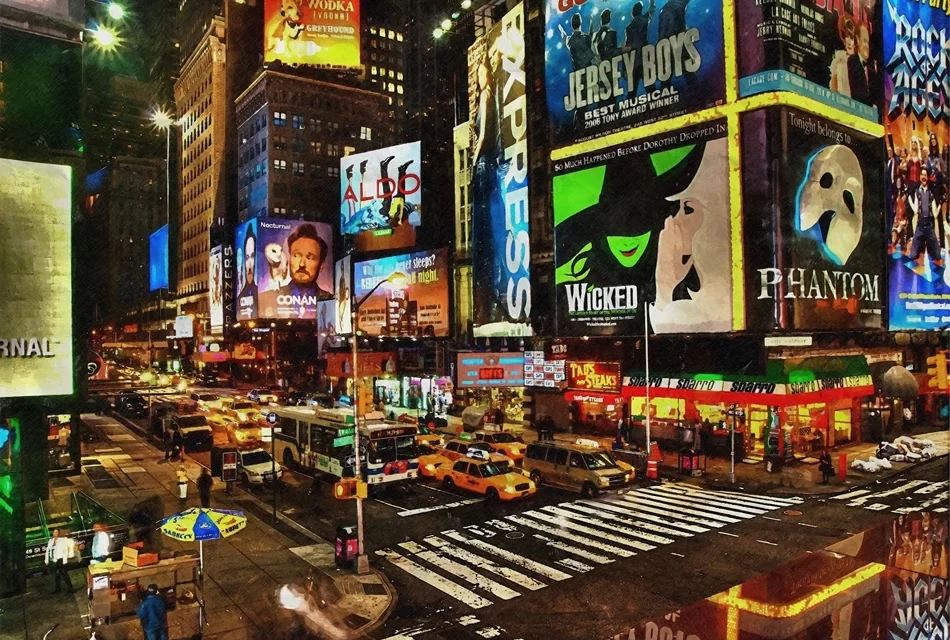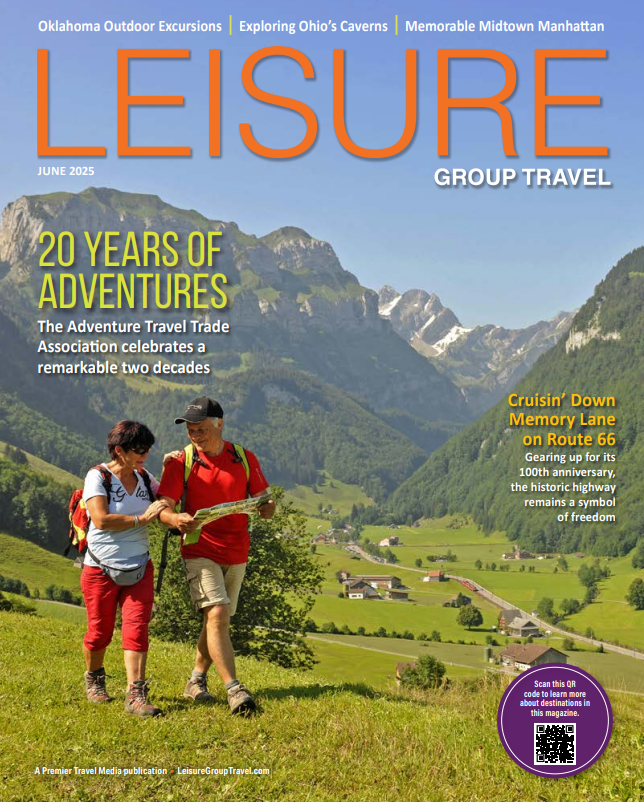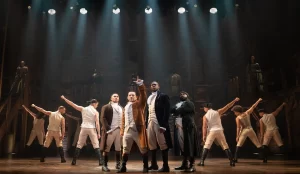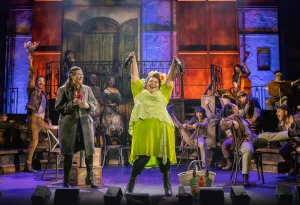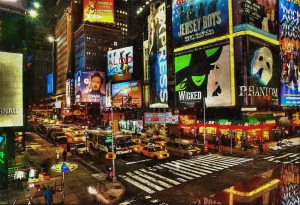An Interview on the Live Theater Industry with Orin Wolf, Producer of Buena Vista Social Club

How did you first get involved in the live theater industry?
I did acting when I was a kid and I always loved the theater. Then, when I got into college, I was studying theater-looking at acting-and I was doing some writing and directing .My teacher suggested that I think about producing because I became obsessed when I was in plays with what was going on in the audience, with what was going on backstage, etc.So, I looked into it and felt like producing actually might be a calling for me, it really clicked. After college I came right to New York and started interning for different producers.
What’s been your proudest professional achievement to date?
I’m proud that I get to work in the theater every day and make a living and raise a family in New York City. I’m also proud that some of these impulses around adapting films like The Band’s Visit and the album Buena Vista Social Club seem to be resonating with audiences. I’m really proud that I have associates who came to me right in the beginning of their careers and have been with me now for many years and who have become really valuable producers. I love seeing young people grow.
For more travel ideas, you can Download the Magazine and Subscribe to LeisureGroup Travel for FREE
What makes live theater such a powerful and enduring form of entertainment?
(One unique thing about theater is) the energy and spontaneity of seeing people do things live. There’s nothing like it .The theater is a sort of forced meditation of economics to me and to audiences, and it’s also what makes it less valuable to big banks and private equity, which are the things that tend to ruin art and commerce. I think that’s one of the things that makes it so exciting and relevant in today’s culture, where everything is digital and everything is artificial. The theater is a respite from that.
What are the biggest challenges facing live theater today?
I don’t know what the biggest challenges are-I don’t think theaters face it. I think, like all industries, we went through a time where the relationship between labor and employer was strained, and there was a lot of economic concessions that have made theater very expensive. It’s always been a luxury good, and it’s always had a high price of entry for Broadway. I don’t see that as a challenge necessarily, I see that as sort of what this industry is and how it operates.
I actually think this industry is shielded from a lot of challenges that other industries face today because of what I said. But I think the challenge that we continue to face is how do you remain daring? How do you preserve and celebrate ingenuity and risk at a time when there’s a lot of economic uncertainty? Investors want certain things, producers are looking for certain returns, everybody wants to try and curb risk, and I think there can be distractions that take us down paths where we dull the very thing that makes this industry special.
What changes have you seen in group sales and tourism-driven attendance in recent years?
I think group sales continue to be a bedrock of how Broadway shows survive. I also come from the touring industry, and I think tours are also a bedrock of how this industry survives. But the great thing about and how it’s intersected with Broadway is that it’s been consistent and we can depend on it, and then being able to depend on something allows room for taking more risk and tourism has always been.
If international or foreign tourism takes any sort of a dip because of what’s going on in the world, I do think that could have an impact and that could force certain shows that look for foreign tourism to have different outlooks and different reality checks. So, I think it’s important that as a city and as an industry we’re investing in tourism and making sure we’re encouraging foreign tourism to the greatest extent possible. Because New York City is still producing the best theater in the world and it’s still a great city to come visit.
What do you think regional theatres or smaller productions can learn from Broadway’s model or vice versa?
It’s two different industries so it’s a tricky question. I’ve worked for nonprofit theaters before, and what’s always been hard for me is when you work for a theater company who’s driven by mission-driven work, then the point of those companies is to produce works of art that speak to their mission. But that’s never what I wanted. I always wanted to let each thing that I work on live on its own terms and speak for itself and ultimately produce things that I thought could appeal to the largest number of people. So, I’m just naturally a commercial producer because it’s where my interests are. But I don’t think that’s necessarily something nonprofits should learn from Broadway because it’s not what they’re built to do. I just see them as two different industries.
I think what we ought to be doing is protecting nonprofits’ fiscal status with the federal government, with tax benefits, and commercial producers should continue to look for nonprofit partnerships where they can help develop work. Ultimately, what we need to do is make sure these nonprofit theaters are funded well enough so that they don’t have to always be seeking out commercial producers to solicit enhancement dollars in order to produce, because it goes against what their mission is.
What advice would you give to destinations or travel planners who want to incorporate more live theater into their itineraries?
My advice is that Broadway’s got such a palette of shows and there are so many different experiences, and I don’t think just going to the thing that is the biggest brand or the one that advertises the most is necessarily going to give your group the most dynamic experience. I think it’s looking at how well do group operators really understand who their groups are and who are the people in their groups and how do you really send them to shows that are going to resonate with them on a personal level?
With Buena Vista Social Club, we’re appealing to everyone: a broad array of regular theatergoers, traditional theatergoers, audiences who are American, white audiences, Latin audiences. If I were bringing a group in from a Latin country who might have a familiarity with this music and these songs, I might seek this show out specifically because those people might have a unique Broadway experience coming to see a show like ours that speaks to them directly. And I’m sure for other cultures, etc. other shows might have a similar impact. I think research and looking at what the shows are is very important. Just like producers take risks, I think we want tourists and groups to take risks.
For more travel ideas, you can Download the Magazine and Subscribe to LeisureGroup Travel for FREE

